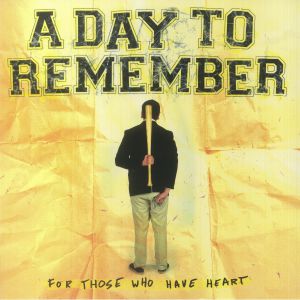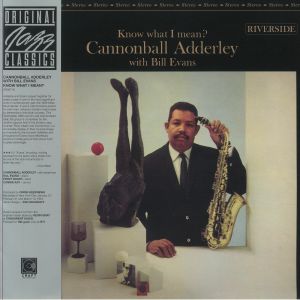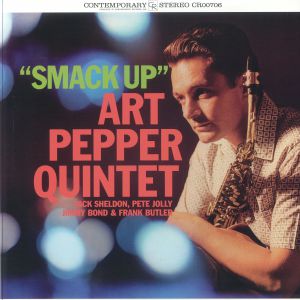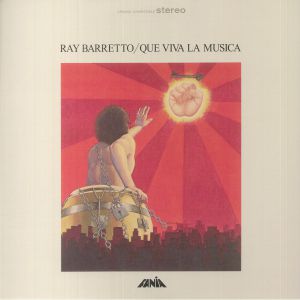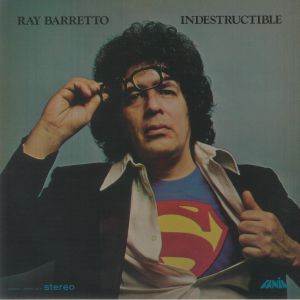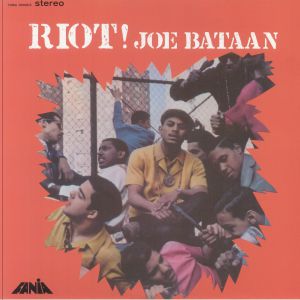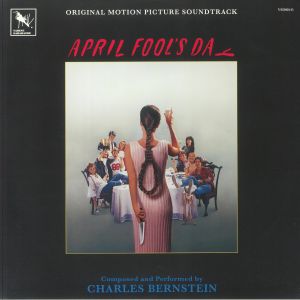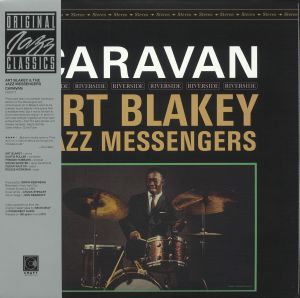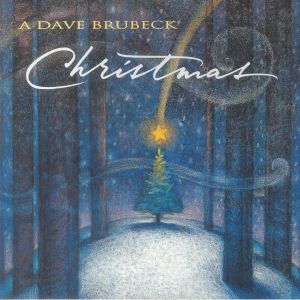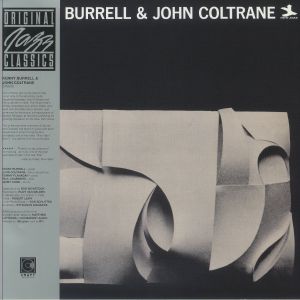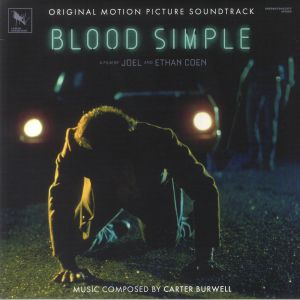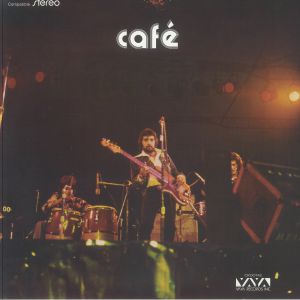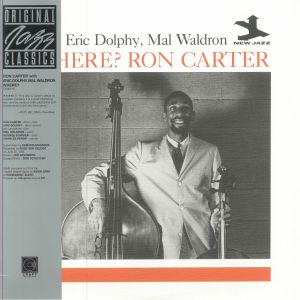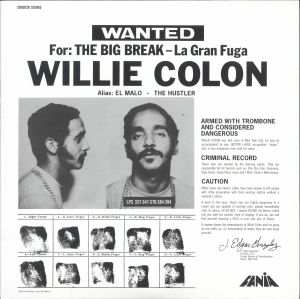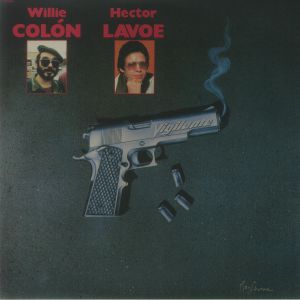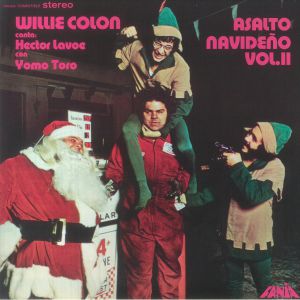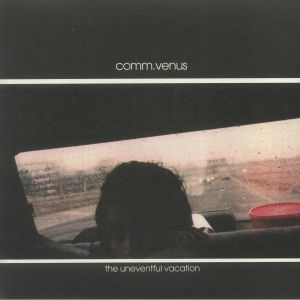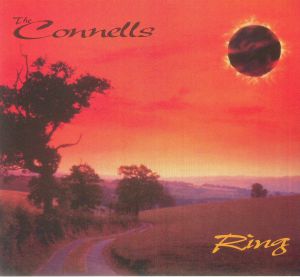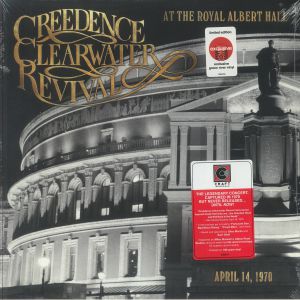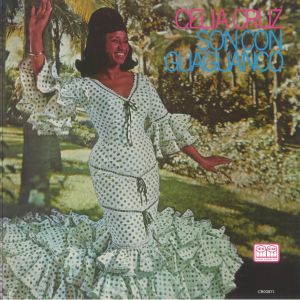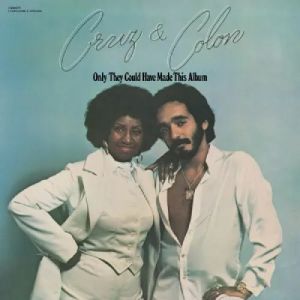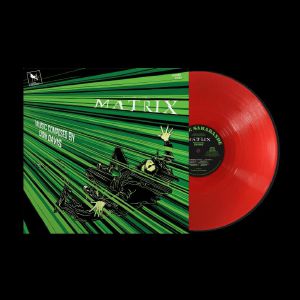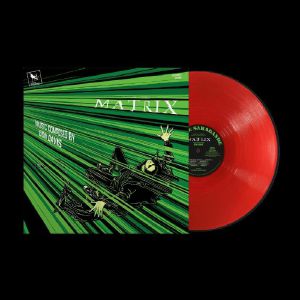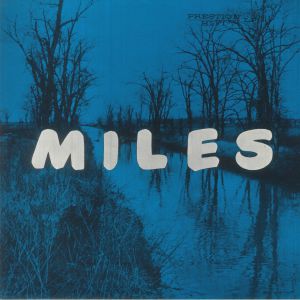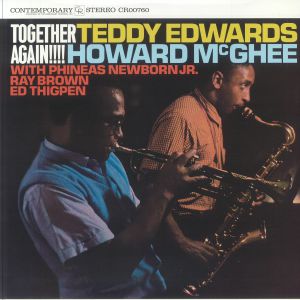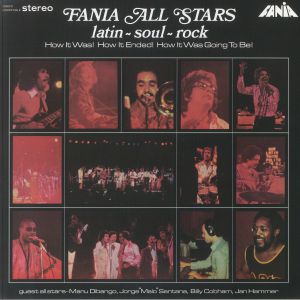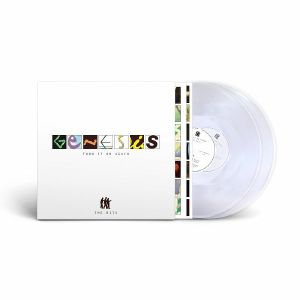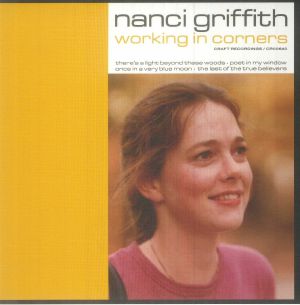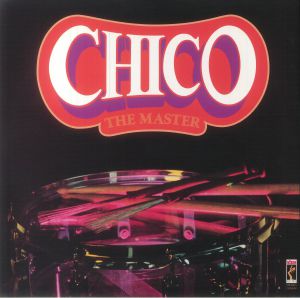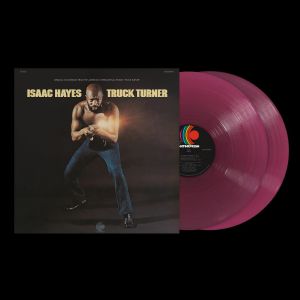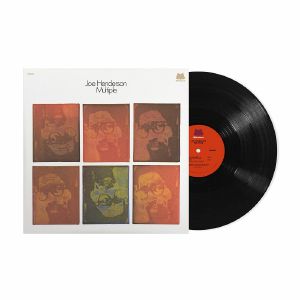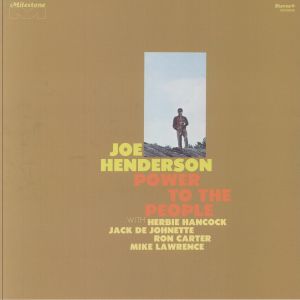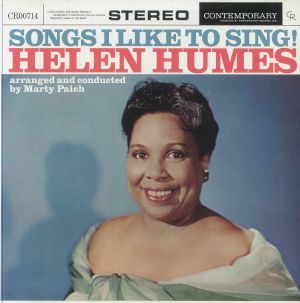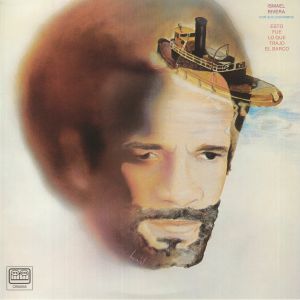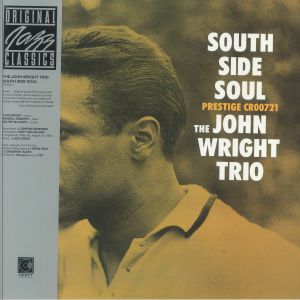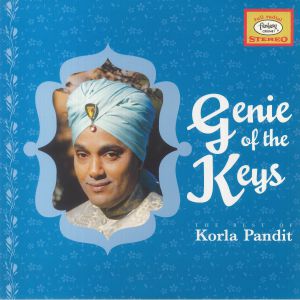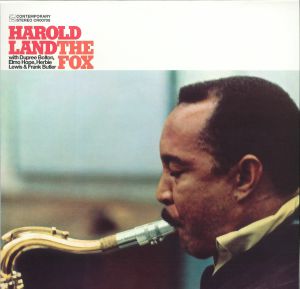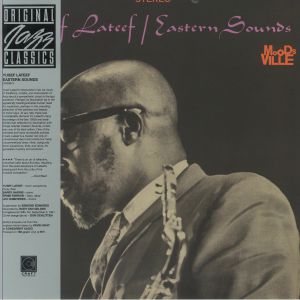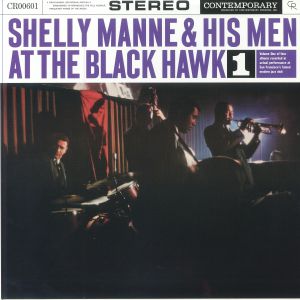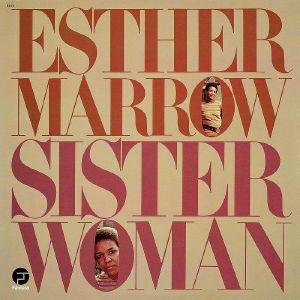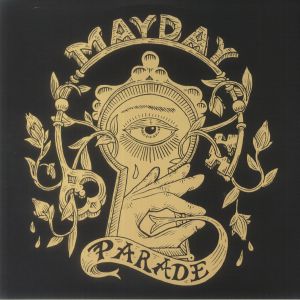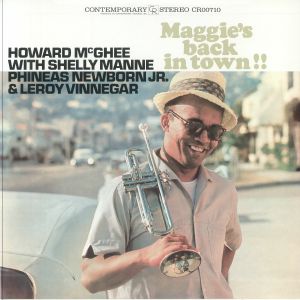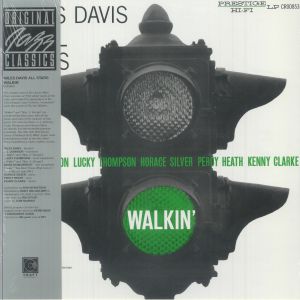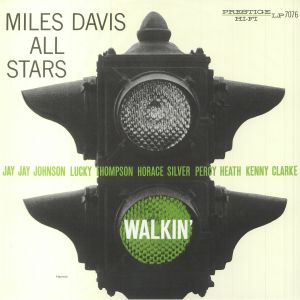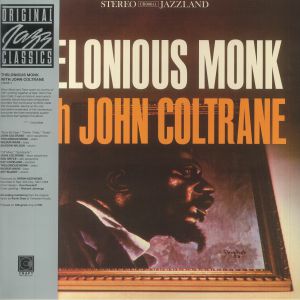Receive new release alerts for Craft
Filter
Music
Featured
Release Title
Price
Tags
Craft Vinilo y CD
Browse the latest Vinyl & CD releases on CraftSimilar labels:
in stock $30.39
Review: Know What I Mean? is a sublime collaboration between two jazz giants. Released in 1961, it showcases the unparalleled musical chemistry between Adderley's exuberant alto saxophone and Evans' masterful piano. With tracks like 'Waltz for Debby' and 'Elsa,' it blends lyrical melodies with inventive improvisation to mesmerise the mind while Adderley's dynamic energy contrasts beautifully with Evans' introspective style. That captivating interplay highlights the best of both musicians and means this album is a timeless gem in the jazz canon that is rightfully celebrated for its sophistication.
… Read moreIntérprete: Juno Recommends Jazz
in stock $45.59
Black Sails In The Sunset (25th Anniversary Edition) (limited neon orange vinyl LP)
Cat: 725897 3. Rel: 18 Jul 24
Punk/Hardcore
Review: Originally released in 1999 and now celebrating its 25th anniversary, Black Sails In The Sunset was the fourth full-length from California hardcore-turned-horror punk heroes AFI, and is often cited as the pivotal project that signalled their sonic, career and identity shift for the decades ahead. Their first album with guitarist Jade Puget, the material marked a notable distancing from the frenetic energy of 1997's Shut Your Mouth & Open Your Eyes, and began their long love affair with gothic romanticism, Lovecraftian lyricism and a newfound horror aesthetic. Perceived by the band and fans alike for being the work that would form the basis of their future sound, while also exuding the first glimpses of vocalist Davey Havok's prowess as a melodious songwriter, there's no more important project in the AFI canon, especially when following onto the career heights of the All Hallow's EP and The Art Of Drowning LP, which likely wouldn't have materialised if not for the creative fearlessness of Black Sails.
… Read more in stock $34.53
Intérprete: Juno Recommends Jazz
in stock $40.06
Review: The music of David Axelrod is a rite of passage for many record collectors. The great composer, arranger and multi-instrumentalists crafted several seminal albums that all take you deep into gorgeous worlds of jazz, funk and library music with narratives you'd expect in film scores and emotion in high supply. Heavy Axe might be one of his best and so this welcome reissue is a timely reminder of that. Its sweeping strings, grand horns and orchestral arrangements ebb and flow with great drama and absorbing artistry so stick it on loud and give yourself over to its rare pleasures.
… Read moreIntérprete: DJ ROCCA
in stock $36.74
Que Viva La Musica (50th Anniversary Edition) (180 gram vinyl LP)
Cat: 724269 2. Rel: 25 May 23
International
Que Viva La Musica
Bruca Manigua
La Pelota
El Tiempo Lo Dira
in stock $33.14
Review: The indestructible Ray Barretto demonstrated superb skills on this record back in 1973. His band were at the forefront of the new Afro-Cuban musical movement that was emerging and became known as salsa. His composer skills were well known after he wrote 'Cocinando' and his band were also much loved in the live area though Johnny Rodriguez on bongo and cencerro, bassist Dave Perez, pianist Louis Cruz, along with trumpeter Rene Lopez and vocalist Adalberto Santiago all left him soon after. HIs Indestructible album is his most remarkable, with a constant sense of flow to the rhythms from front to back.
… Read more in stock $33.14
Riot! (Record Store Day Black Friday RSD 2024) (180 gram vinyl LP)
Cat: 726218 0. Rel: 02 Dec 24
International
Review: Joe Bataan's 1968 sophomore album Riot! is considered a cornerstone of Latin soul and the record that truly cemented his reputation as the genre's king. Backed by the dynamic Latin Swingers band, Bataan masterfully blends Afro-Cuban rhythms, soul and funk with his signature streetwise flair. Tracks like 'It's a Good Feeling' and the title song capture the energy and emotion of late-1960s urban life while reflecting both personal and societal struggles. Its infectious grooves, raw vocal delivery and tight instrumentation mean that this one remains a timeless classic that continues to resonate across the generations.
… Read moreIntérprete: Craig Charles Funk And Soul
in stock $36.19
April Fool's Day (Soundtrack) (Deluxe Edition) (gatefold 2xLP + insert in spot-varnished sleeve)
Cat: 724758 1. Rel: 25 Apr 24
Soundtracks
Review: For the most part, in 2024 movie soundtracks only really make it into the public domain when the film was a big hit, or has achieved the kind of cult status that turns fans into collectors. April Fool's Day, released in 1986, received widely varied responses from critics at the time, but has since chalked up a strong following among die hard horror, and particularly slasher, movie lovers. We definitely recommend watching it - the flick landed at a great time for genre and sub-genre and refused to kowtow to the canon's rules of the day. In terms of score itself, this is Charles Bernstein working at his most comfortable (his other horror scores include the iconic Nightmare On Elm Street, a year or so earlier), so think tense, ominous refrains, twinkling synths, and descending strings. Oh, and bar room rock & roll.
… Read more in stock $34.53
Review: Reissued via Craft now, after a long run with Art Blakey's original issuers Riverside Records, Caravan is the first record by the drummer to be released in 1963. With Freddie Hubbard on trumpet, Wayne Shorter on sax, Curtis Fuller on trombone, Cedar Walton on piano and Reggie Workman on bass, Blakey commands a fiery, banging temper on this eight-track record, yet somehow still makes such carpal explosives flow like poetry. The album's most notable element is that Blakey finds immense joy in subtly variating around difficult, tupletting riffs, which nonetheless go on to produce discernible and well-rounded progressions. We wouldn't expect anything less from the master.
… Read moreIntérprete: Juno Recommends Jazz
in stock $42.27
in stock $39.22
Kenny Burrell & John Coltrane (Original Jazz Classics Series) (180 gram vinyl LP with obi-strip)
Cat: CR 720. Rel: 06 Jun 24
Jazz
Review: Part of the Original Jazz Classics Series, this 1963 album from the great Kenny Burrell and John Coltrane is now reissued on 180-gram vinyl. Featuring Burrell and Coltrane, along with Tommy Flanagan, Paul Chambers, and Jimmy Cobb, the album comprises five tracks that have been remastered from the original tapes by Kevin Gray at Cohearent Audio. It's an absorbing journey into two genius creative minds and comes comes in a Tip-On Jacket, preserving the essence of the original release while offering enhanced sound quality for contemporary listeners.
… Read moreIntérprete: Juno Recommends Jazz
in stock $35.35
Blood Simple (Soundtrack) (Record Store Day RSD Black Friday 2023) (limited translucent red marbled smokey vinyl LP)
Cat: 724452 7. Rel: 08 Dec 23
Soundtracks
in stock $28.46
Review: A deep dive into the Fania vaults has uncovered Cafe, a Latin funk and soul classic that was recorded half a century ago. To mark the 50th anniversary of this great album, which was produced by the legendary conguero Ray Barretto and originally released on Vaya Records, it gets this nice heavyweight reissue on Craft. The standout track 'Si Dame Tu Amor' delivers infectious funk grooves reminiscent of Barretto's own work, while 'Identify Yourself' is another one to light up any party. All the tunes have been cut from the original master tapes by Kevin Gray at Cohearent Audio so sounds superb.
… Read moreIntérprete: Craig Charles Funk And Soul
in stock $35.64
Review: Renowned bassist Ron Carter's inaugural album, 'Where?' introduced a stellar lineup of talent alongside the main man including Eric Dolphy on clarinet, saxophone, and flute, and pianist Mal Waldron. Originally recorded at Rudy Van Gelder Studios in New Jersey in 1961, the record showcases the early brilliance of Carter's musical vision. Now reissued as part of the Original Jazz Classics Series, this edition is pressed on high-quality 180-gram vinyl by RTI. Mastered with meticulous care by Kevin Gray at Cohearent Audio, using analogue techniques from the original tapes, this release offers a pristine listening experience and is a great chance to rediscover the timeless allure of Carter's debut masterpiece.
… Read moreIntérprete: Juno Recommends Jazz
in stock $39.22
La Gran Fuga: The Big Break (reissue) (limited 180 gram vinyl LP + poster)
Cat: 725603 4. Rel: 11 Apr 24
International
Review: Craft Latino's vinyl reissue of Willie Colon and Hector Lavoe's 1970 album La Gran Fuga is a welcome revival of one of Latin music's most iconic collaborations. Newly remastered and pressed on 180-gram vinyl, this release allows listeners to experience the brilliance of Colon and Lavoe's sixth album in all its glory. With classics like 'Barrunto,' 'Pa' Colombia,' and 'Abuelita,' 'La Gran Fuga' presents the duo's unparalleled creativity and commercial success. Backed by a talented lineup of musicians overseen by Johnny Pacheco, Colon and Lavoe push the boundaries of salsa music, incorporating diverse musical traditions and delivering dance-floor hits alongside emotive ballads. The album's iconic cover art, featuring Colon's "Malo" alter-ego in an FBI wanted poster, adds to its cultural significance. Despite initial controversy, La Gran Fuga became a massive success, earning the duo their second Gold certification and solidifying their place in Latin music history. Retrospectively praised as "essential music" and lauded for its confidence and flexibility, La Gran Fuga remains a shining emblem of the Colon/Lavoe musical aesthetic. As listeners revisit these timeless tracks, they're reminded of the duo's remarkable talent and enduring legacy.
… Read moreIntérprete: Juno Recommends International
in stock $37.30
in stock $30.39
in stock $36.74
The Uneventful Vacation (25th Anniversary) (Record Store Day RSD 2022) (limited red & black smoke vinyl LP)
Cat: 724000 5. Rel: 03 May 22
Punk/Hardcore
in stock $33.99
in stock $16.30
in stock $24.58
Review: This reissue brings an essential piece of Latin music history back to life. The album crackles with energy, blending Afro-Cuban rhythms with an electrifying brass section and masterful percussion. Upbeat guaracha mambo, driving son montuno and cha-cha-cha grooves create an infectious momentum, while the arrangements from legends like Tito Puente, Charlie Palmieri and Louie Ramirez ensure every track is dynamic and meticulously crafted. The opener is a self-affirming explosion of rhythm, setting the tone for a collection that seamlessly balances joyful exuberance with poignant storytelling. Tracks like the rapid-fire guaracha about the struggles of rebuilding life as an immigrant add depth, while lighthearted guajira melodies and a playful cha-cha-cha about space travel showcase remarkable versatility. Despite its initial modest success, this record was a foundational moment, paving the way for an illustrious career that would define and elevate salsa worldwide. The remastering from the original analogue tapes ensures a rich listening experience. Nearly six decades later, its impact and brilliance remain undeniable.
… Read moreIntérprete: Craig Charles Funk And Soul
in stock $36.74
Review: Celia & Johnny, released in 1974 on Fania Records, marked a pivotal moment for both Celia Cruz and salsa music. By this point, Cruz was already a celebrated star in Cuba, but her attempts to break into the U.S. salsa scene had struggled. Enter Johnny Pacheco, co-founder of Fania Records and leader of the Fania All-Stars. A longtime admirer of Celia's powerful contralto voice, Pacheco believed her potential had been stifled by overly complex arrangements. He was confident that pairing her voice with his more streamlined Afro-Caribbean rhythms would catapult her into salsa stardomiand he was right. The album produced two defining hits, 'Toro Mata' and 'Quimbara', both of which immediately resonated with dancers and salsa enthusiasts. The infectious grooves provided by Pacheco's band allowed Celia's voice to shine, and the success of these tracks solidified her status as the Queen of Salsa. Celia & Johnny is now seen as a cornerstone of salsa's golden age. The record's blend of traditional Cuban styles like mambo, guaracha, and guaguanco with the modern salsa sound brought the genre to a wider audience, particularly younger U.S.-born Latinos. Deep cuts like 'Tengo El Idde', 'Lo Tuyo Es Mental', and 'Canto a La Habana' further showcase Cruz's versatility, with moving performances that tap into spiritual, comedic and patriotic themes. Ultimately, Celia & Johnny remains a landmark collaboration that helped define the global appeal of salsa.
… Read moreIntérprete: Juno Recommends International
in stock $36.74
Cat: TBA.
International
coming soon $36.19
The Matrix (Soundtrack) (25th Anniversary Edition) (gatefold 'red pill' vinyl LP)
Cat: VSD 899. Rel: 14 Nov 24
Soundtracks
in stock $36.19
The Matrix (Soundtrack) (25th Anniversary Edition) (B-STOCK) (gatefold 'red pill' vinyl LP)
Cat: VSD 899 (B-STOCK). Rel: 01 Jan 90
Soundtracks
B-STOCK: Sleeve damaged but otherwise in excellent condition
in stock $32.04
Review: For all but the most ardent followers of jazz and diehard Miles Davis fans, it can be hard to keep up with the many different albums he put out alongside his Quintet. That Quintet, often said to be the greatest in all of jazz history thanks to including Miles on trumpet next to John Coltrane on tenor, Red Garland on keys, bass from Paul Chambers and Philly Joe Jones on drums, put out several long players with very similar titles including this one, Miles: The New Miles Davis Quintet, in 1956. It is one of the earlier works from the then newly formed band and the songs in it are a mix of pop and jazz standards.
… Read more in stock $38.67
Review: Together Again!!!! reunites trumpeter Howard McGhee and saxophonist Teddy Edwards in a jazz collaboration originally released in 1961 that is as energised and electric as the title with all its many exclamation marks. This reissue is part of the Acoustic Sounds Series and showcases the exceptional talents of McGhee and Edwards alongside Phineas Newborn Jr. on piano, Ray Brown on bass, and Ed Thigpen on drums. It has been cut from the original master tapes by Bernie Grundman so the AAA lacquers enhance the album's rich sound. It's a mini-classic of the jazz world and it never sounded better.
… Read more in stock $35.35
Review: Craft Recordings get back on their curatorially expert business with this serious new reissue from Fania All Stars, the long out-of-print Latin-Soul-Rock. This eight-track gem from the 70s salsa ultragroup (literally; FAS consisted of over 25 members at the height of its fame), released via their own label in 1974, documents the moment at which over 40,000 salsa punters visited New York's Yankee Stadium to catch a glimpse of their talents, alongside a myriad of other Latin greats. Fania All Stars threw a curveball, however, by not only playing pure salsa but blending it with styles like funk and soul, thus sticking out from the crowd and adding a spicier punch. We welcome this record, out via Craft Latino, with alacrity, as it celebrates the 50th anniversary of this 'wow' moment, which deserves to be documented even if solely for its powers of FAS' fusional imagination.
… Read moreIntérprete: Juno Recommends International
in stock $37.30
Turning It On Again: The Hits (25th anniversary edition) (clear vinyl 2xLP)
Cat: RCV 183244. Rel: 21 May 24
Progressive Rock
Review: Turn It On Again: The Hits offers a concise collection of Genesis's chart-topping tracks, catering to fans who view the band primarily through their hit singles. While some lesser-known songs make the cut over notable tracks like 'Paperlate' or 'Man on the Corner,' the compilation delivers all the major hits, including 'Turn It On Again,' 'Invisible Touch' and 'Follow You, Follow Me.' Although the sequencing may seem odd at times, with Peter Gabriel's earlier work juxtaposed with Phil Collins-era hits, standout moments like the reworked 'The Carpet Crawlers 1999' showcase the album's value. While it may not sway die-hard fans, Turn It On Again satisfies those seeking a comprehensive overview of Genesis's mainstream successes.
… Read more in stock $68.24
How We Operate (National Album Day 2024) (gatefold translucent amber vinyl 2xLP)
Cat: 726225 3. Rel: 19 Oct 24
Indie/Alternative
Review: How We Operate is the fifth studio album from Gomez, originally released in May 2006. Celebrating National Album Day 2024, it is now available for the first time on vinyl since its debut, pressed on double amber translucent vinyl. The album features standout tracks from the Sheffield stool rockers such as 'See The World', 'How We Operate', 'Notice', and 'Girlshapedlovedrug'. Known for its eclectic mix of indie rock and blues, this limited edition is a collector's gem for hardcore Gomez fans.
… Read more in stock $38.67
in stock $47.79
The Master (50th Anniversary Edition) (Record Store Day RSD Black Friday 2023) (limited 180 gram purple marbled vinyl LP)
Cat: 725329 5. Rel: 08 Dec 23
Jazz
in stock $35.35
Truck Turner (Soundtrack) (Record Store Day Black Friday RSD 2024) (gatefold 180 gram translucent purple vinyl 2xLP with obi-strip)
Cat: 725923 9. Rel: 02 Dec 24
Soundtracks
Review: The original motion picture soundtrack for The Truck Turner delivers a thrilling blend of gritty funk, soul and high-energy jazz that perfectly complemented the 1974 blaxploitation classic. Composed by the great Isaac Hayes, the soundtrack is a dynamic showcase of his signature style that blends soulful melodies with intense orchestral arrangements. Tracks like 'Main Theme' and 'Breaking Into The Business' capture the raw energy and tension of the film while Hayes' deep voice and lush arrangements bring an added layer of sophistication to the score.
… Read more in stock $41.86
Review: Joe Henderson's synergistic 1973 sax record first came to Milestone Records amid the musician's long and storied fusion-crossing-into-free-jazz period. With a Warholian front cover and a punch-packing cast of talents behind him - from Larry Willis to James Blood Ulmer to Dave Holland to Jack DeJohnette - this is indeed a milestone, charging terminals of funk, blue jazz and Afrobeat, and crossing into both the spiritual and the atonal. Mid-record high-point 'Song For Sinners' almost certainly takes after Sun Ra with its trembling saxophones above a distended groove, while 'Turned Around' is a lot freer and easygoing and yet far more determined in the rhythm section.
… Read moreIntérprete: DJ ROCCA
in stock $44.75
Review: Craft Recordings offer up an in-demand reissue of Joe Henderson's Power To The People, an abiding classic in the domain of New York hard bop, and one of three standouts in Henderson's Milestone Records era, through which the completist listener may chart and increasing political awareness and stylistic horizon-expansion on the artist's behalf. Recorded during a turbulent phase in the Civil Rights movement of the 1960s, Power To The People raises a clenched fist in favour of democracy and equality, whilst at the same time incorporates many an unforeheard sound and instrument for Henderson, from electric piano to bass and enlisting the aid of fusion greats like Herbie Hancock and Ron Carter - all amounting to the jazz equivalent of a revolutionary event, after which nothing would ever be the same.
… Read moreIntérprete: DJ ROCCA
in stock $37.30
Review: Jazz vocalist Helen Humes is not as well known as some of her peers, but that isn't for lack of talent. This was her second album on Contemporary Records and it came in 1961 as a fully realised exhibition of her vocal versatility and charm. Conducted by Marty Paich, the record features an all-star lineup including saxman Art Pepper, bass from Leroy Vinnegar, drums by Shelly Manne and guitar from Barney Kessel. This reissue has been meticulously crafted with AAA lacquers cut from the original master tapes by Bernie Grundman so is an authentic representation of the original magical sound with unmatched fidelity.
… Read more in stock $34.81
Esto Fue Lo Que Trajo El Barco (reissue) (limited 180 gram vinyl LP (indie exclusive))
Cat: 724260 5. Rel: 02 Mar 23
International
in stock $39.22
Review: Released with acclaim, John Wright Trio's South Side Soul resonates with an authentic and vibrant energy that captures the essence of the South Side music scene. Led by John Wright's soulful piano, the trio weaves intricate melodies and infectious rhythms throughout the record. Tracks like title song and '63rd And Cottage Grove' exhibit's the trio's ability to blend traditional jazz elements with the raw energy of soul music, resulting in a dynamic and captivating listening experience. The musicianship displayed on each track is impeccable, with tight grooves and expressive solos that keep listeners engaged from start to finish. South Side Soul is more than just an album; it's a journey through the rich musical landscape of the South Side. This album takes you to the street scene in Chicago 1950s.
… Read moreIntérprete: Juno Recommends Jazz
in stock $40.88
in stock $33.14
Review: Originally released in 1960, Harold Land's Fox has not been reissued since 1969; this Craft Recordings reissue is long overdue. The tenor saxophonist delivers six fast-paced hard bop dazzlers here, flaunting an ultra-speedy take on the already high-velocity sound. Aside from the obvious talents of Land, the listener will be equally impressed by the inclusion of St. Elmo Hope in the Land band as pianist, lending an extra-special dimension to this challenging, whimsical, but still breezy album.
… Read more in stock $35.35
Review: The legendary Yusef Lateef is a jazz great, a true innovator and artist with several seminal albums to his name. His famous 'Eastern Sounds' was one of the last recordings made by the band shared with pianist Barry Harris. With the demise of their playing relationship coming to an end, the album is a spiritual journey through tonal and polytonal improv, building on the musical expertise of the far East and appropriating it for jazz. It's a historic album that captures a special moment in his career and still stands out as a vital listen.
… Read more in stock $42.82
Review: The Black Hawk Vol. 1 by Shelly Manne & His Men is a classic hard bop album that captures the energy and excitement of a live performance. Originally released in 1960 and now in 2024 with stunning sound quality. The album features a dynamic band led by the legendary drummer Shelly Manne, who is widely regarded as one of the greatest jazz drummers of all time. The group also includes tenor saxophonist Richie Kamuca, trumpeter Joe Gordon, pianist Victor Feldman, and bassist Monty Budwig. The album opens with a laid-back rendition of "Summertime," which sets the stage for the more up-tempo bop tunes that follow. The band swings with effortless precision, and the solos are all top-notch. At The Black Hawk Vol. 1" is a must-listen for any fan of hard bop or jazz in general.
… Read moreIntérprete: Juno Recommends Jazz
in stock $38.67
in stock $39.22
in stock $33.71
Monsters In The Closet (10th Anniversary Edition) (gatefold 2xLP (side 4 etched))
Cat: 725232 7. Rel: 30 Nov 23
Indie/Alternative
in stock $44.75
Review: The pioneering American jazz trumpeter Howard McGhee was one of the first to do bebop and this is often noted as a legacy for which he never truly did receive credit by the history books. Maggie's Back In Town!!, however, released in 1961 on the Contemporary label, is the most likely candidate for piercing this occlusive remainder; it's a tight, light tsk-tsker, on which McGhee's playing is never once heard getting ahead of itself or biting off more than it can chew. The mood is laconic and muted, as if to demonstrate McGhee's relaxed persona and long-awaited return to town. Phineas Newborn Jr (piano), Leroy Vinnegar (bass) and Shelly Manne (drums) add to the hoo-hah with their virtuosic but subtle sang-froid.
… Read more in stock $37.30
Review: A striking album of the bop era that was highlighted by his undying conviction and ability to reclaim his status as a primary architect of the genre. The album is built around two exceptional groups: a sextet and a quintet, both anchored by Davis' blue-chip rhythm section of Horace Silver (piano), Percy Heath (bass) and Kenny Clarke (drums). The sextet features trombonist J.J. Johnson and tenor saxophonist Lucky Thompson, while the quintet adds Dave Schildkraut (alto sax), whose contributions, though lesser-known, are memorable. The title track, an extended 12-bar blues, shows Davis' ability to exude an air of detachment from the music, making it feel like an extension of his solo rather than the other way around. 'Blue 'n' Boogie', in contrast, is a lively, energetic tune where Davis and Johnson engage in spirited improvisation, with Johnson even quoting from Thelonious Monk's 'Rhythm-A-Ning'. 'Solar' introduces a delicate interplay, with Silver's piano solo displaying an Ellington-esque elegance. The album's final track, 'Love Me or Leave Me', foreshadows Davis' later breakthrough, with his swift and decisive trumpet solo hinting at the bold innovations to come. Walkin' stands as an essential bop-era classic, with Davis' brilliant command over his instruments and his bandmates, with pieces like 'Walkin'' and 'Solar' cementing its place as a foundational jazz work.
… Read moreIntérprete: Juno Recommends Jazz
in stock $38.67
Review: Walkin' was (and is) a key album in Miles Davis’ discography. It contains the product of two different sessions: the first date, which is actually the second chronologically, yielded just two tracks, ‘Walkin’’ and ‘Blue N’ Boogie’. Although something new for the time, these were long enough to fill one side of the ensuing LP. On the B-side is the record of a more fruitful session, quantity-wise: the expository ’Solar’ is a serene an carefree bop, keeping up airy echelons of sax and double-tsking rides amid cloud-chopped rays of sunlight. Then comes the careful channelling of blue resentment, ‘You Don’t Know What Love Is’, a difficult-to-achieve, but beautifully executed take on the bittersweet aftertaste of failed amity.
… Read more in stock $30.94
Thelonious Monk With John Coltrane (180 gram vinyl LP with obi-strip)
Cat: CR 00611. Rel: 25 May 23
Jazz
Review: As part of the newly relaunched Original Jazz Classics Series, Kevin Gray at Cohearent Audio has remastered this seminal jazz record from Thelonius Monk and John Coltrane from the original tapes and in all analog fashion. It's a deserving treatment for what many believe to be one of the great ever collaborative jazz records. As well as those two legendary players and jazz innovators, further greats joined in the recording sessions including Art Blakey on the drums, Wilbur Ware on bass, and alto sax from Gigi Gryce. What a piece of history it is too.
… Read moreIntérprete: Juno Recommends Jazz
in stock $51.10

 USD
USD





